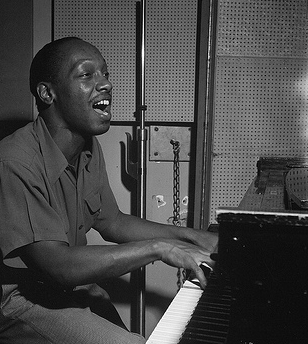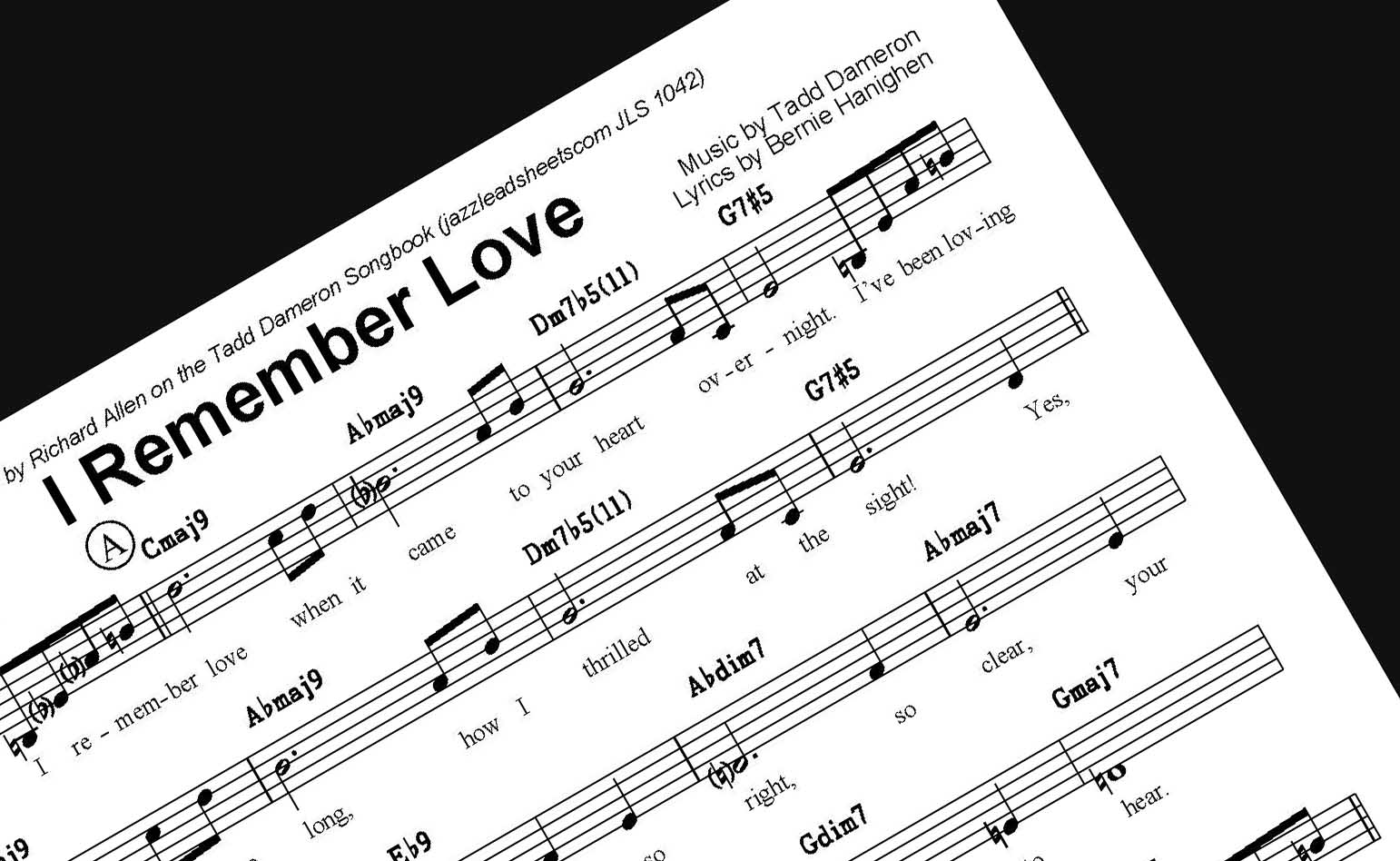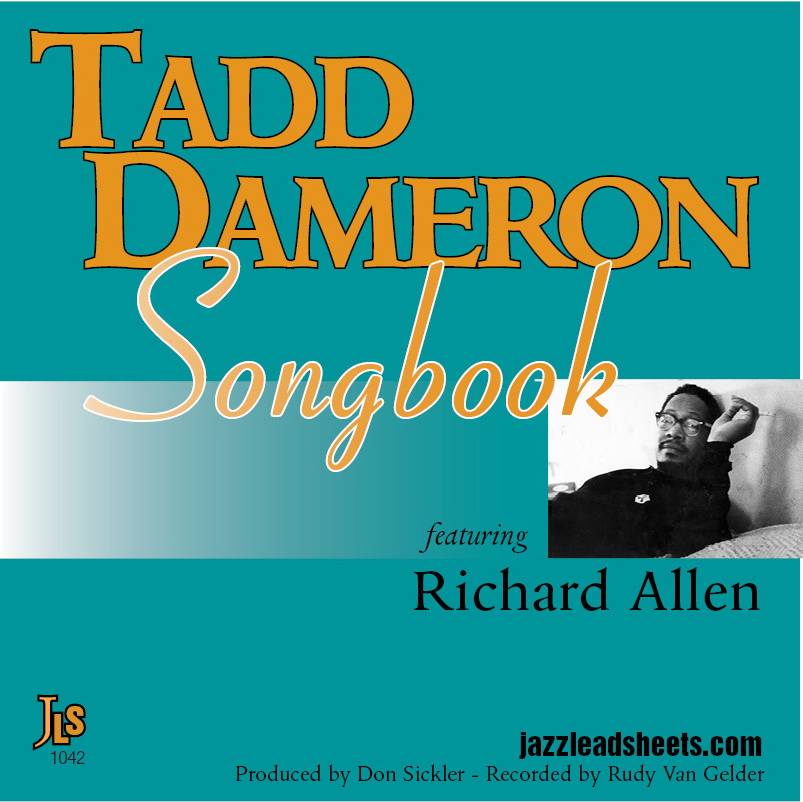Another absolutely beautiful Tadd Dameron ballad, this one is particularly remarkable in the way it plays with expectations regarding major and minor tonalities. The opening melody pick up arpeggio, A♭ minor ascending to D, outlines a resolution that would imply C minor, but actually lands on C major. Despite this suggestion of C major as the ultimate key, the A section melody still implies C minor; the changes largely reflect this tonality but return to major on the fifth measure. The B section goes to A♭ major and then G major; note that the melody is similar in these two four-measure phrases, but a step higher in the lower key. This B section has a four-measure tag developing the melodic phrase of the seventh and eighth measures back toward C minor, resolving again in major for the C section. C is identical to A, and D begins in A♭ major like the B section, resolving back to a II-V7—finally in C minor as the initial melody had implied.
Similarly, the lyric by Bernie Hanighen plays with emotional expectations, leading in a positive direction only to climax at D with an unexpected ending. The lyric is perfectly melded to Dameron's melody; the surprise ending is revealed after the highest melody note.
We're presenting our ballad vocal lead sheet editions in a few different keys, including Tadd's original key of C minor (with a range of B3 to E♭5). Vocalist Richard Allen, with his rich low register, sings it in F minor—two octaves below where it is notated—this is a long meter bossa version. (Our F minor lead sheet is written an octave above where it would be sung in an alto register, to avoid too many ledger lines.) Neither of these are female friendly keys, so we're also providing G minor (with a range of F♯3 to B♭4).
The song never goes lower than the first note you sing, and the first five notes span the range of the song, except for one note a half step higher near the end. If you have a good low E, you'll probably want to do it in F minor. In G minor, you start on low F♯ which works for most female singers.
This song has been recorded instrumentally, by trumpeter
Benny Bailey accompanied by pianist Kirk Lightsey. Our own
Don Sickler added his muted trumpet and flugelhorn interpretations to Richard's rhythm section.



